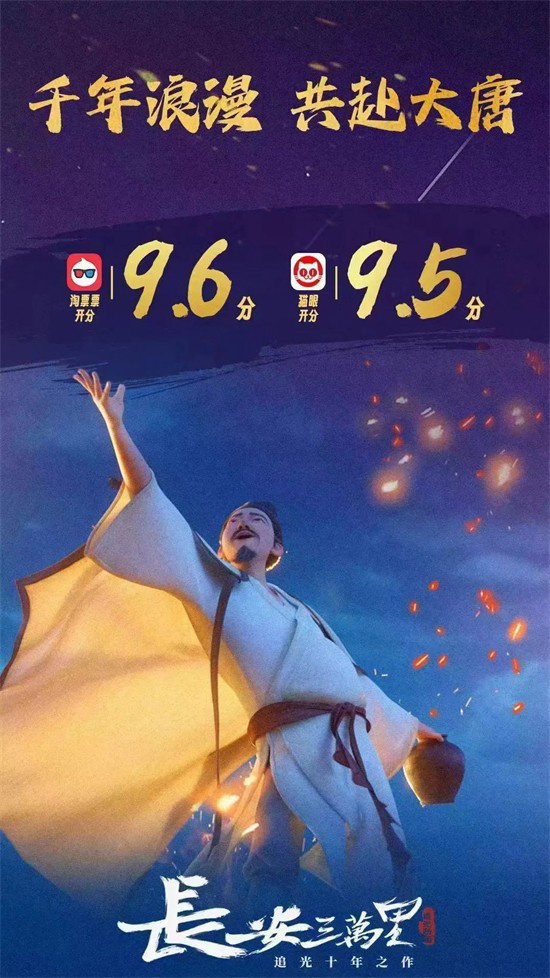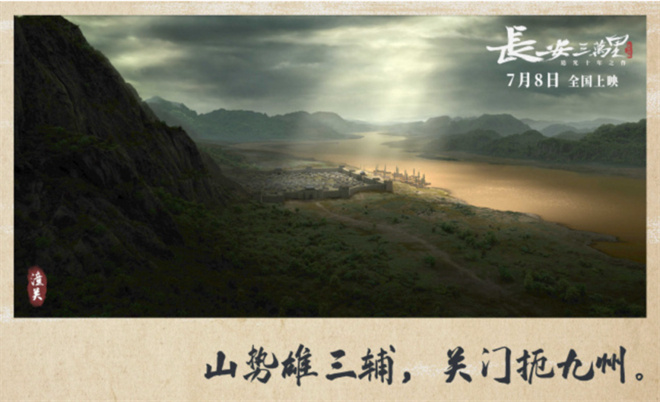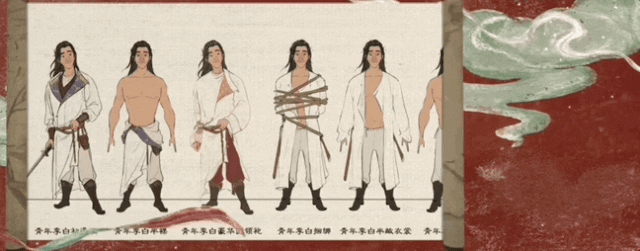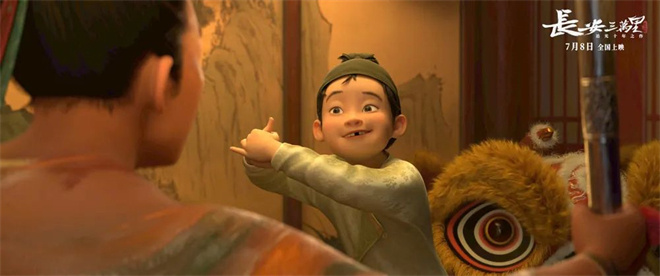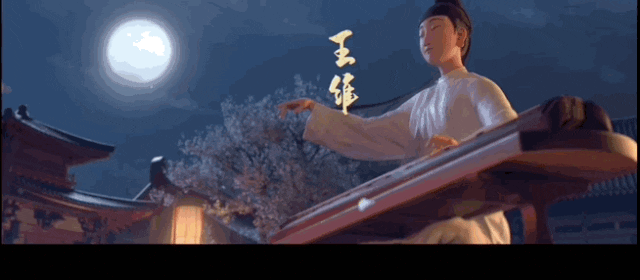CCTV News:According to the website of National Health Commission, recently, National Health Commission issued a notice on printing and distributing the implementation guide for all novel coronavirus nucleic acid testing organizations (second edition). The full text is as follows:
All provinces, autonomous regions, municipalities directly under the Central Government and Xinjiang Production and Construction Corps should respond to the joint prevention and control mechanism of COVID-19 epidemic (leading group and headquarters):
In order to effectively cope with the possible epidemic situation caused by Delta mutant in Covid-19 and further improve the implementation ability of nucleic acid testing organization for all employees, we organized experts to revise the Implementation Guide for Nucleic Acid Testing Organization for All Employees in novel coronavirus (Second Edition) based on the previous work practice, and formed the Implementation Guide for Nucleic Acid Testing Organization for All Employees in novel coronavirus (which can be downloaded from the "Medical Administration" section of the website of the National Health and Wellness Commission). Is issued to you, please refer to the implementation.
The State Council responds to novel coronavirus.
Comprehensive group of epidemic prevention and control mechanism
September 8, 2021
Guidelines for the Organization and Implementation of novel coronavirus Nucleic Acid Detection for All Staff (Second Edition)
Nucleic acid detection is an important means of infection prevention and control in novel coronavirus (hereinafter referred to as Covid-19). In order to guide all localities to do a good job in the preparatory work for Covid-19 nucleic acid detection in large-scale population, ensure the completion of all the nucleic acid detection tasks within the designated area with good quality and quantity within the specified time, and realize "early detection, early isolation, early diagnosis and early treatment", this guide is formulated.
I. General requirements
Actively respond to the epidemic situation in COVID-19, quickly and efficiently control the epidemic situation, standardize the organization, sampling, testing and reporting of all employees’ nucleic acid testing, and co-ordinate the deployment of nucleic acid testing resources to improve the quality of nucleic acid testing.Cities with a population of less than 5 million should complete the task of nucleic acid detection for all staff within 2 days, and if necessary, they can make overall protection within provinces (autonomous regions and municipalities). Cities with a population of more than 5 million shall complete the task of nucleic acid detection for all staff within 3 days, and may apply for national support if necessary.
Second, organize the implementation
(a) the party committee and government take overall responsibility. Party committees and governments at all levels take the overall responsibility for the nucleic acid detection work of all staff, coordinate all relevant departments at all levels, coordinate in many ways, and manage in a flat way.
(2) Establish an organizational mechanism. Districts and cities are required to set up a nucleic acid detection working group under the local joint prevention and control mechanism, led by the Standing Committee of the Municipal Party Committee, and organize relevant departments such as health, public security, civil affairs, transportation, finance, industry and information technology, publicity, etc., to establish a flat working mechanism, which will be urgently activated in case of epidemic, and coordinate the nucleic acid detection work as a whole. Take residential buildings, natural village groups, schools, institutions, enterprises, companies, markets, hotels, etc. as the smallest units to achieve full coverage and no omissions. Do a good job in the unified purchase and deployment of nucleic acid testing materials for all staff.
(3) Formulating a work plan. City, county (city, district) to develop an operable large-scale nucleic acid detection work plan, combining emergency with emergency, and timely carry out early warning screening drills.
(four) the formation of the work force.
1. Set up teams of nucleic acid sampling, sample delivery, nucleic acid detection, technical support of information platform and corresponding emergency response at all levels, and define the area of responsibility for sampling and detection. When all the people in the province start nucleic acid detection, they can immediately put into work. All emergency teams are guaranteed to be on standby 24 hours a day and make all preparations for starting at any time.
2. Set up a nucleic acid sampling supervision team to guide each sampling point in the form of piecemeal contract, standardize sampling, personal protection and cross-infection prevention and control, find and solve problems in time, and ensure high quality and efficiency of sampling.
3. Set up a nucleic acid detection supervision team, organize clinical laboratory experts to establish a patrol and supervision mechanism, conduct inspections of laboratories, and supervise third-party nucleic acid detection institutions.
4. Set up a special data class to manage nucleic acid detection information in a unified way, determine the flow of nucleic acid detection information, and collect, count and report it by special personnel to improve the efficiency and accuracy of information flow.
(5) Overall allocation of resources. Establish a support mechanism for nucleic acid sampling and testing areas in the province, dynamically and comprehensively grasp the basic situation and daily (24-hour) testing capacity of various nucleic acid testing institutions around the country, and make scientific and reasonable deployment according to the needs of the starting place for all nucleic acid testing. When necessary, apply for support from the State Council joint defense and control mechanism.
(six) to formulate emergency plans. Each township and community shall set up a special work class, with sufficient staff, comprehensively find out and dynamically grasp the base number of all members of the grid, do a good job in reasonable planning and material preparation of sampling sites, and make clear the layout and staffing of sampling points. Make an emergency plan and conduct drills regularly to ensure that once it is started, it can be quickly organized and carried out on-site sampling in an orderly manner.
Third, work preparation
(a) to find out the base and establish a ledger. Based on the public security household registration and census data, all districts and cities should pre-register the actual population base and distribution of streets (towns), communities and communities within their respective jurisdictions by means of informationization, and accurately grasp the situation of special populations, the ability of testing institutions, the reserve of nucleic acid testing materials, regional sampling and testing teams, sample delivery personnel and vehicle demand. Establish a work ledger, formulate a clear timetable and road map, and timely check and fill the gaps according to the amount of nucleic acid detection tasks and the existing reserves, so as to ensure that all staff will carry out nucleic acid detection in time when there is an outbreak.
(2) Implement the detection capability. Health administrative departments at all levels should master the local medical institutions, CDC and the third-party nucleic acid detection forces that can be quickly mobilized, and do a good job in the reserve of nucleic acid detection capabilities. When an epidemic occurs, the nucleic acid detection force equivalent to 10%-15% of the actual management population can be quickly dispatched to meet the needs of large-scale nucleic acid detection in the whole region.
(3) Scientific analysis and accurate screening. According to the epidemic spread trend, taking risk as the guide, the scope of nucleic acid detection is accurately defined and the nucleic acid detection strategy is determined.
1. Determine the nucleic acid detection strategy. According to the epidemic spread trend, strengthen research and judgment, scientifically delimit risk areas and dynamically adjust them at the first time. In the early stage of the epidemic, at least three rounds of full-scale nucleic acid testing should be carried out in the case of unknown risk sources; After that, the scope and frequency of subsequent detection were determined according to the comprehensive judgment of the traceability of flow regulation, the scope of community control and the results of nucleic acid detection. In principle, quarantine points and streets or communities where cases have occurred in the last three rounds of nucleic acid testing should be inspected once a day, streets or communities where cases have occurred within 14 days but no cases have occurred in the last three rounds of nucleic acid testing should be inspected every other day, and areas where cases have not occurred within 14 days can be inspected every five days.
2. Determine the sampling method. According to the control measures taken by the target population, the sampling method should be determined. Isolation points and other key populations should adopt single sampling and single inspection, with one household and one tube in the closed community (closed to households), and other areas should adopt 5-mixed 1 or 10-mixed 1 to carry out testing according to the actual situation.
(4) reasonable dicing and scientific layout. All localities should comprehensively consider the population, geographical transportation, distribution of nucleic acid detection institutions, etc., and plan the layout of sampling points in advance under the guidance of professional departments. The sampling stations should not share the same tent or the same space.
1. All localities should comprehensively plan the layout of sampling points according to the population, geographical traffic and the distribution of nucleic acid detection institutions.Reference every 1000-1500 people to set up a sampling point, 500-1000 people to set up a sampling station (all localities can set up according to the actual population of communities, streets, towns, rural areas and suburbs), and in principle, set up sampling points in units of communities.
2. Sampling points should be standardized and put into use within 4-6 hours. On the basis of fixed sampling points, grid management mode should be adopted, with community sampling as the main mode, and the layout should be refined and improved by entering schools, enterprises and units, so as to facilitate citizens’ sampling and improve sampling efficiency. Vulnerable groups such as the elderly over 60, pregnant women and the disabled should set up green channels for independent sampling.
(five) to strengthen information technology, do a good job of dynamic matching of mining, delivery and inspection.
1. Establish a nucleic acid detection information system. All provinces shall co-ordinate the establishment of a nucleic acid detection information system, so as to quickly input information, including the information of the examinee (name, certificate type, certificate number, residential address and telephone number) and sampling information (name of sampling point, district (county), sample number, date and time of sample collection, collection location, type and quantity), and quickly feed back the information of the examinee suspected to be positive. Realize the rapid, accurate and real-time monitoring of information collected, sent, tested and reported in nucleic acid detection, and achieve the whole process management of nucleic acid detection. Before the information system is put into use, stress tests should be conducted in advance according to 30% of the actual population under management to ensure the stability of the information system.
2. Do a good job of matching collection, delivery and inspection. Before starting large-scale nucleic acid detection, the matching of collection, delivery and detection should be done well in advance, and dynamic scheduling should be carried out. According to the set sampling ability of sampling points and the actual testing ability of each testing institution, the matching and preparation of dicing sampling and sample delivery should be done in advance. According to the detection progress and rhythm of nucleic acid detection laboratory, samples are sent in batches and dynamically scheduled to make full use of detection capacity and improve detection efficiency.
(6) Fully staffed and provided with sufficient materials.
1. Prepare sampling medical personnel and information entry personnel in advance, and carry out relevant training. Each sampling station shall include one sampling staff and one information entry staff. Calculate according to the sample of 100-150 people collected by each sampling station every hour, reasonably evaluate the workload and allocate personnel. Sampling medical staff should be familiar with the collection methods of nasopharyngeal and oropharyngeal swabs, and carry out strict training on sensory control. Information collectors should be familiar with the operation process of information system and carry out relevant sensing and control training.
2. In accordance with the principle of "rather prepare than use, not available and not prepared", on the basis of fully considering the special weather conditions such as rain, snow, low temperature and high fever, according to the layout of sampling points, arrange material reserves or establish an effective calling mechanism at the sampling points in list and ledger, and keep them nearby to ensure that sampling tubes (single sampling, 5 mixing, 10 mixing) and throat swabs (nasopharyngeal swabs) are used in large-scale nucleic acid detection. The medical consumables required for sampling shall be stored locally according to the local population, and the cities and counties shall uniformly dispatch them.
Fourth, the work content
(1) Improve information registration. In the preparation stage of the whole staff’s nucleic acid testing, the community (village) is taken as the work unit, and the sampling information of residents within the jurisdiction is collected and registered in advance through various ways, including at least the residents’ names, ID numbers, home addresses (specifically to house numbers) and contact numbers. At the same time, we must do a good job in protecting residents’ information security.
(2) Standardize the setting of sampling points. A sampling point can be composed of multiple sampling stations, and a sampling station should include sampling personnel, information collectors, volunteers and other related staff and related necessary materials.
1. Personnel preparation.
(1) It is necessary to compact the responsibilities of the four parties, scientifically divide the grid, standardize the organizational process, and take residential buildings, natural village groups, schools, institutions, enterprises, companies, markets, hotels, etc. as the smallest units, so as not to lack households and people. Fine organization and management, strictly implement the "1 meter" interval requirements, ensure that residents queue for no more than 30 minutes, prevent people from gathering and avoid cross-infection.
(2) Each sampling station shall be equipped with 1-2 sampling personnel. Arrange the rotation of sampling personnel reasonably, and take a rest every 2-4 hours in principle.
2. Space preparation. The sampling point should be an independent space with ventilation conditions, and the interior should be divided into corresponding clean areas and polluted areas, equipped with hand hygiene facilities or devices. The sampling points shall be clearly marked, and the sampling process and matters needing attention shall be defined. Set up an independent waiting area to ensure one-way flow of personnel. The sampling point shall not be set in the same place as the vaccination point in Covid-19.
3. Material preparation.
(1) Basic facilities: tents, tables, chairs or stools and other necessary materials to ensure the smooth development of sampling work.
(2) Sampling materials: special sampling swabs, qualified collection tubes, enough test racks, transport vehicles and transport boxes (Class B packaging) and protective materials for sampling personnel.
(3) Information collection system: All localities should establish a special information collection system to improve sampling efficiency, strengthen information management of nucleic acid sampling, and avoid manual reporting.
4. Collection method. According to the "Notice on Printing and Distributing the Manual of novel coronavirus Nucleic Acid Detection in Medical Institutions (Trial Second Edition)" (No.313 [2020] of the Joint Prevention and Control Mechanism).
5. Relevant requirements.
(1) Personnel requirements. Personnel engaged in the collection of nucleic acid samples in Covid-19 should be doctors or nurses, be familiar with the sample types and collection methods, master the operation procedures and precautions of sample collection, and record the sample information well to ensure that the sample quality meets the requirements and the samples and related information can be traced back. Sampling and Covid-19 vaccination personnel cannot be the same staff. Covid-19 vaccine cannot be inoculated 48 hours before sampling.
(2) Requirements for collection tubes. The pipe cap and pipe body should be made of polypropylene, the spiral opening can be sealed, the tightness is moderate, the cover has a gasket and is resistant to freezing. The tube is transparent and has good visibility. The outer diameter of the test tube is (14.8 0.2) mm× (100.5 0.4) mm, the outer cap is (15.8±0.15)mm and the height is (12.5 0.5) mm.. The capacity enterprise calibrates 10mL, which contains 3mL (single mining and 5-in-1 mixed mining) or 6mL(10-in-1 mixed mining) of guanidine salt (guanidine isothiocyanate or guanidine hydrochloride, etc.) or other effective virus inactivators, and the sampling tube containing guanidine salt is preferred. The preservation solution should have a color (such as pink) that is easy to observe and identify, and maintain a certain fluidity to facilitate sampling.
(3) Requirements for swab collection. It is advisable to use non-cotton and non-calcium alginate swabs such as polyester and nylon, and the handle is made of non-wood materials. The breaking point is located about 3cm from the top of the swab head, which is easy to break.
(4) Requirements for protective equipment of sampling personnel. According to the "Notice on Printing and Distributing the Manual of novel coronavirus Nucleic Acid Detection in Medical Institutions (Trial Second Edition)" (No.313 [2020] of the Joint Prevention and Control Mechanism).
(5) Information collection requirements. Before sample collection, the sampling personnel shall check the identity information of the client.
(3) Proportion of sampling personnel. When the sampling point needs to register information manually for some reason, the ratio of sampling staff, service support personnel and personnel to be inspected is 1:4:100, that is, for every 100 personnel to be inspected, one group of sampling staff and four service support personnel are required. When information is registered at the sampling point by means of information scanning code, the ratio of sampling staff, service support staff and personnel to be inspected is 1:3:130.
(4) sample preservation and transshipment. Nucleic acid test samples should be kept at low temperature (2-8℃), equipped with enough vehicles and professionals, and in principle, samples should be collected every 2 hours for transshipment to ensure that the samples are delivered to the laboratory within 4 hours after collection. Non-inactivated samples are packaged in PI602 according to Class A infectious substances of UN2814 in WHO’s Guidelines for the Transport of Infectious Substances, and inactivated samples are packaged in PI650 according to Class B infectious substances of UN3373. Before the sample transfer box is closed, the surface of the container must be disinfected with 75% alcohol or 0.2% chlorine-containing disinfectant.
Nucleic acid detection working group should accurately grasp the sampling situation and detection ability, accurately match the sampling quantity, and be equipped with enough vehicles and professionals to ensure that the samples are transported by special vehicles. In the whole staff nucleic acid detection work, the vehicle undertaking the transshipment task shall file the transshipment scope, transshipment route, transshipment starting point and destination with the health administrative department for the record. Vehicles shall not be used for other purposes during the transshipment task, and biological safety protection shall be done during transshipment. It is necessary to coordinate public security, transportation and other departments to do a good job in transportation safety guarantee according to actual needs.
If the samples need to be sent to other provinces (autonomous regions and municipalities) for testing, the provincial health administrative department shall apply to the National Health and Health Commission and implement them according to the reply.
(5) Standardize sample reception. The laboratory has established a professional team for sample receiving, formulated a scientific, standardized and efficient sample receiving process, and conducted training.
(six) to ensure the testing ability and quality. Provinces (autonomous regions and municipalities) should strengthen overall planning, do a good job in measuring and equipping personnel and instruments according to the actual situation of population and distribution of medical resources, and on this basis, increase the allocation of personnel and equipment by 20% as the detection capacity reserve, and guide the municipal people’s government in the mainland to formulate the time limit for completing the full detection task and the sampling strategy.10,000 tubes are tested daily (10,000 for single tube, 50,000 for 5-mixed 1 and 100,000 for 10-mixed 1).The detection capabilities to be prepared are as follows:
1. Detection personnel and equipment: 24-25 Covid-19 nucleic acid detection personnel, 15 related auxiliary personnel, 4-6 96-well nucleic acid extraction instruments, 10-12 96-well PCR amplification instruments, and 4 A2 double biosafety cabinets. Eight-channel pipettes, plate centrifuges, and vortex mixer are used together.
2. Testing reagents and consumables: prepare corresponding quantities of reagents according to mixed mining or single mining. In addition to conventional detection reagents, 1-2 other reagents with higher sensitivity and different amplification targets from conventional detection should be prepared for the result review. Equipped with a corresponding number of consumables, such as PCR amplification plate, extended suction head with filter element, test tube rack, etc.
3. Protective equipment: medical protective mask (head-mounted), isolation gown or protective clothing, powder-free latex gloves, shoe covers, protective screen or goggles, hat, hand sanitizer, etc., and the dosage is 2-3 days per person per day. Different types of protective equipment should be configured according to the body type of personnel.
4. Relevant requirements:
(1) Personnel requirements. In accordance with the "Covid-19 nucleic acid detection manual of medical institutions (Trial Second Edition)" related requirements.
(2) Requirements for extraction instrument and amplification instrument. If a nucleic acid extractor is used, the nucleic acid extraction reagent should be used together with the nucleic acid extractor, and the nucleic acid extraction reagent and the amplification instrument specified by the amplification test kit should be selected. All equipment shall undergo necessary verification/calibration, and the procedure documents for the use, maintenance, verification and calibration of instruments and equipment shall be established and strictly implemented according to the procedure documents.
(3) Reagent requirements. The reagent should be matched with the testing instrument. It is recommended to use a reagent containing at least the gene regions of Covid-19’s 1ab(openreadingframe1ab (ORF1ab) and nucleocapsidprotein (N). The amplification kit shall be a kit with registration number approved by National Medical Products Administration. It is suggested to choose a detection kit with low detection limit and high sensitivity (detection limit ≤ 500 copies /mL). All reagents should be properly preserved in strict accordance with the requirements and conditions, and used within the validity period.
(seven) standardized testing and timely reporting of results.
1. Sample testing. After receiving the samples, the laboratory shall immediately carry out testing. Before detection, full shaking elution was carried out, and then nucleic acid extraction and amplification experiments were carried out.
2. Quality control. Performance verification, indoor quality control, and ventricular interstitial rating shall be carried out in accordance with the relevant requirements of the Manual for Nucleic Acid Detection in Covid-19 of Medical Institutions (Trial Second Edition).
3. Test report. The qualitative detection report of nucleic acid in Covid-19 should include the detection results (detected/positive, undetected/negative), methodology and detection limit, detection time, etc. According to the instructions of the amplification reagents used, it is judged that the detection result is undetected/negative or detected/positive.
4. Clear time limit. The test results shall be reported in a timely manner, 6 hours for key people in key areas and 12 hours for other people, and in principle, it shall not exceed 24 hours.
(eight) standardize the disposal procedures of positive case reports.
1. The processing flow of positive detection of apheresis. When the test result of single sampling is positive, the testing institution shall immediately report it to the nucleic acid testing working group, and the working group will also push two pieces of information (basic information of positive infected persons and positive report of nucleic acid testing) to six departments. First, inform 120 negative pressure ambulance to transport positive infected persons. The second is to inform the designated medical institutions to prepare to receive the positive infected person. The third is to inform the community (community) where the positive infected person is located to confirm and control the positive infected person and the people who live with him (close contact). The fourth is to inform the public security organs to assist in the transfer of positive infected persons and carry out the trajectory investigation of the positive infected persons. The fifth is to inform the CDC to carry out the work of flow adjustment, close contact investigation, research and judgment on the scope of community closure control, and terminal disinfection of epidemic spots. The sixth is to inform the epidemic prevention and control headquarters. The above six departments push at the same time, in no particular order.
2. Mixed mining detection positive disposal process. Each city has set up an emergency sampling team, which is on standby 24 hours a day to make all preparations for departure at any time. When the mixed sampling test is positive, the testing institution shall immediately report it to the local nucleic acid testing working group, and the working group shall also notify the emergency sampling team, the community (community) where the mixed sampling sample is located and the public security organ to immediately isolate the people involved in the case in situ and review the single sampling. The first inspection responsibility system is adopted, and the rechecked samples are sent to the original laboratory for testing. If the recheck result of single mining is positive, it shall be handled according to the disposal process of single mining detection, and the detection of mixed positive single mining shall be completed within 6 hours (see Figure 1 for details).

Fig. 1 positive disposal process of mixed mining
3. Emergency safeguard measures. All districts and counties set up emergency teams according to the actual situation, and re-examine the positive results of mixed mining in time. The emergency sampling team shall be composed of sampling personnel, information collectors and drivers, and equipped with vehicles. Public security, community (village Committee) and other relevant personnel shall cooperate with emergency sampling personnel to take samples at home, adopt nasopharyngeal swab method, and send the samples to the original testing institution for testing.
(9) Checking and pushing information. Compare the inspected personnel with the population base, organize supplementary inspection to ensure that no one is missed, and form a closed loop of work. Provide a way to query the test results, which is convenient for the public to know and apply the results.
(10) Medical waste treatment. Medical wastes are generated in all aspects of nucleic acid detection. Do a good job in the collection, packaging, harmless treatment, temporary storage, handover and transfer of medical wastes. Use double-layer packaging bags to contain medical wastes and seal them effectively, so as to ensure that the sealing is tight and the packaging of medical wastes is not damaged or leaked.
1. Basic requirements. Covid-19 sample collection sites and laboratories carrying out nucleic acid detection shall formulate medical waste disposal procedures. All medical wastes must be labeled in accordance with unified and standardized containers and labeling methods, and the contents of the wastes must be labeled completely and in compliance. Medical waste should be treated by trained personnel using personal protective equipment and equipment.
2. Treatment measures of medical waste. The treatment of medical waste is the key link to control the biological safety of collection sites and testing laboratories. We must fully grasp the relevant classification related to biological safety and strictly implement the corresponding treatment procedures.
(1) In the sampling site, a medical waste collection device should be set up, so that it can be cleaned up and transported in time, and the site should be disinfected regularly to prevent environmental pollution. Organized by each street (township), with 3-5 people in each sampling place, responsible for terminal disinfection and medical waste transfer in the sampling place.
(2) The treatment of laboratory waste liquid and solid waste shall be carried out in accordance with the relevant requirements of the Manual for Nucleic Acid Detection in Covid-19 of Medical Institutions (Trial Second Edition).
(3) After the sample testing is completed, all samples and medical wastes shall be collected and treated as infectious wastes.
(4) After the gene amplification test, the reaction tube should not be opened after amplification, but should be sealed once with a sealed bag before being put into a garbage bag, and the mouth of the bag should be sealed, so as not to be sterilized by high-pressure steam, and then be transferred out of the laboratory for treatment as medical waste.
(5) Every time the laboratory is exposed to high pressure, it is necessary to verify the disinfection effect by chemical method and keep the disinfection and verification records. According to the biological risk assessment, the biological monitoring of autoclaving effect can be carried out once a month or quarterly according to the operation requirements.
3. Medical waste removal.
(1) Determine the management unit. Nucleic acid testing institutions can independently choose centralized medical waste disposal units with corresponding qualifications to undertake the tasks of medical waste removal and harmless disposal. When the surge of nucleic acid detection tasks leads to the contradiction between the transportation capacity of medical waste and the amount of waste produced, the local ecological and environmental department can rationally allocate the collection and transportation tasks according to the current collection and transportation route of the centralized medical waste disposal units in the jurisdiction and the principle of convenience nearby, so as to improve the collection and transportation efficiency.
(2) The nucleic acid testing institution shall negotiate and sign a service contract with the centralized medical waste disposal unit, and the service price shall be guided by the development and reform department. If it fails to sign a contract with the centralized medical waste disposal unit, the local ecological and environmental department shall designate the centralized medical waste disposal unit to be responsible for the collection and transportation of medical waste and sign a contract with the nucleic acid testing institution.
(3) Ensure timely removal. Nucleic acid detection institutions should make an appointment with the collection and transportation unit for removal time according to the storage situation of medical wastes in temporary storage places, and the removal should avoid strong winds and thunderstorms. Collection and transportation units should optimize the dispatching of transport vehicles, rationally arrange the collection and transportation routes, and do a good job in ensuring the removal and transportation of medical wastes. According to the situation of epidemic prevention and control, when a large number of nucleic acid detection tasks are added, the frequency of removal should be appropriately increased. The temporary storage time of medical wastes in nucleic acid testing institutions shall not exceed 2 days.
(4) Strengthen the removal protection. Nucleic acid testing institutions should designate special channels for medical waste handling and use special cargo (building) ladders. Medical waste removal personnel should do personal protection (wear work clothes before handling ordinary medical waste and protective clothing before handling medical waste related to epidemic situation), and wear protective equipment such as protective masks and gloves correctly, and try to avoid contact with other staff during handling. The medical waste removal personnel shall deliver the medical waste to the designated place along the special passage according to the agreed time, and shall ensure that the medical waste does not fall to the ground, and shall not discard or omit the medical waste. It is necessary to clearly inform whether this batch of medical waste belongs to "epidemic-related medical waste" during the transfer process.
After each medical waste removal work, the protective equipment of the removal personnel shall be disinfected and managed according to the medical waste, and the contact parts of the removal personnel such as door handles, the environment of the transfer area (such as the special handling passage, the goods (building) ladder, the empty place of the temporary storage place), facilities, transfer vehicles and containers shall be fully disinfected.
(5) Implement the system of ledger and joint receipt. Nucleic acid detection institutions (laboratories) should establish a medical waste management ledger system, timely register the output, removal amount and removal unit of medical waste, and keep the registration data for at least 3 years. When transferring medical wastes, the Joint List of Medical Waste Transfer shall be filled in and filed for future reference as required.
Five, nucleic acid testing support team related requirements
The party committees and governments of all provinces (autonomous regions and municipalities) may set up at least 10 nucleic acid detection support teams according to the situation of their own provinces, and each nucleic acid detection team reserves relevant materials according to the daily detection capacity of 10,000 tubes.To undertake the task of supporting the full-time inspection in the region or other provinces. The materials required by the nucleic acid testing support team shall be equipped separately, and shall not occupy the material reserves of the units dispatched by the nucleic acid testing support team. Party committees and governments of provinces (autonomous regions and municipalities) can give priority to the national public testing laboratories and urban nucleic acid testing bases as nucleic acid testing support teams according to the deployment of the joint prevention and control mechanism in the State Council, and on this basis, build other nucleic acid testing support teams according to actual needs.
Each nucleic acid detection support team shall be equipped with at least the following personnel and materials:
(1) personnel.
1. quantity. 24-32 people (based on four shifts, 6-8 people in each shift, 15 auxiliary personnel, and the detection capacity is 10,000 tubes /24 hours).
2. Basic requirements. Working in medical institutions and third-party testing institutions, with clinical gene amplification laboratory post training certificate, unlimited title, more than 2 years of experience in pathogen nucleic acid amplification testing, and Covid-19 nucleic acid testing experience, in good health. One of them is a team leader, who requires team management experience, good comprehensive quality and strong leadership, organization, coordination and communication skills. 1 assistant to the team leader (also liaison officer and mobile detection). At least 1-2 team members have the ability of instrument installation and debugging, maintenance and calibration and information network debugging. At least 4-6 personnel familiar with the quality control of nucleic acid detection and the analysis and reporting of test results. At least one team member has the knowledge and ability of laboratory biosafety risk assessment and taking corresponding protective measures. At least one team member has been trained and qualified in the use of autoclaved containers.
(2) Instruments and equipment. The packaging of instruments and equipment shall be durable and reusable, so as to prepare for multiple packaging and transportation of instruments and equipment.
1. Nucleic acid extractor (96 wells): 6 sets.
2. Fluorescent PCR Amplifier (96 wells): 12 sets.
3. Micro-adjustable sampler: single channel (1-10μ L、5-50μ L、10-200μ L、200-1000μ L)4-5 sets; 8 channels, 3-4 branches.
4. Auxiliary equipment: 2-3 single-tube palm centrifuges; 8 2-3 sets of header and/or 96-well plate centrifuges respectively; 2-3 small vortex mixers; 1-2 multi-tube vortex mixers (used for the whole plate vibration mixing of sampling tubes); 5 sampler racks; A2 type biological safety cabinets for two persons, 4.
5. Instrument spare parts: a certain number of easily worn parts such as magnetic rods, fuses, light bulbs, etc.
(3) reagents.
1. Nucleic acid extraction reagent. It can be used for testing 20,000-30,000 samples. The nucleic acid extraction reagent should be matched with the nucleic acid extraction instrument.
2. Amplification of detection reagents. At least two kinds, one of which should be matched with the extraction reagent for daily detection, and the analytical sensitivity (detection limit) ≤ 500 copies /mL, which can be used for 20,000-30,000 samples. In addition, 1-2 reagents should be different from the amplification area of daily detection reagents, and the analytical sensitivity should be more sensitive than that of daily detection reagents, such as 100-300 copies /mL, which is used for re-examination and confirmation when daily detection reagents are positive. Amplification reagents should be transported in cold chain transport boxes.
3. Others. Kit for instrument calibration; Pseudovirus particle quality control products used for testing system performance verification and indoor quality control, etc.
(4) Consumables.
1. Extended suction head with filter element. Specification 10μ L,100μ L,200μ L,1000μ L, no DNA and RNase, and the quantity corresponds to the detection reagent.
2. Eight-joint exhaust pipe, matching 96-hole plate, sealing film, sealing bag and sample adding groove. Corresponding to the number of detection reagents, and matched with the amplification instrument. There are 10 sample-adding grooves and 20-30 plate frames for eight-connection pipes.
3. Test tube rack. 50-100 4×8 or 8×12 test tubes (large holes, which can hold 5-in-1 and 10-in-1 mixed nucleic acid collection tubes).
4. Protective equipment. Medical protective masks (head-mounted), surgical masks, isolation gown, protective clothing, powder-free latex gloves, shoe covers, face screens or goggles, hats, hand sanitizers, etc., each team member is equipped with one set for 2-3 days per day. Different types of protective equipment should be configured according to the players’ body types.
5. Others.
(1) 4-5 walkie-talkies are used to communicate with the outside of the laboratory.
(2) 1 smart phone. It is used to transmit image information and report results to the outside in time in the laboratory.
(3) 1 computer. In addition to the computer supporting the amplifier, an additional computer is provided for data processing outside the laboratory.
(4) 1-2 mobile hard disks or large-capacity USB flash drives.
(5) Share software. If possible, you can pre-install sharing software on all computers, such as teamviewer, so that the team leader or quality supervisor can check and review the positive results at any time outside the laboratory.
(6) A first-aid kit, equipped with commonly used drugs and first-aid supplies.
Six, nucleic acid testing laboratory reserves and security
Cities with a population of less than 5 million should reserve more than 2 laboratories or areas that can be rebuilt for the nucleic acid detection support team;Cities with a population of more than 5 million should reserve more than 5 laboratories or areas that can be rebuilt for the nucleic acid detection support team. Each laboratory or remodelable area should accommodate at least 5 inspection teams (the daily inspection quantity of each team is calculated as 10,000 tubes), and reserve relevant inspection equipment, reagents and consumables. The personnel, sites and materials that each supporting nucleic acid testing laboratory should be equipped with are as follows:
(1) personnel.
1. Personnel receiving, deactivating and sorting samples: 20-25.
2. Cleaning and medical waste disposal personnel: 4 persons.
3. Hospital contact person: 1 person, responsible for the communication between the nucleic acid testing support team and counterpart medical institutions.
4. Government contact person: 1 person, responsible for communication with the local government of the nucleic acid testing support team.
(2) Site preparation.
1. Sample receiving and inactivation (if applicable) treatment. The sample receiving space should be about 50 square meters, equipped with 2-3 A2 biosafety cabinets. The pretreatment room should be equipped with at least large sample transfer boxes, freezers, air disinfection machine, air conditioners, a large number of test racks and shelves. If a large number of samples cannot be inactivated in the biosafety cabinet, you can choose a ventilated, spacious, relatively remote and convenient place for sample transfer vehicles to receive samples and inactivate them and number them.
2. Nucleic acid amplification detection laboratory. There should be at least three physically completely separated working areas, namely, reagent preparation area (more than 20 square meters), sample preparation area (more than 40 square meters) and amplification and product analysis area (more than 40 square meters). If the laboratory has a mechanical ventilation system, the ventilation in each area should be more than 10 times/hour; If there is no ventilation system, the sample preparation area and the amplification and product analysis area must have windows leading to the outside, and 1-2 strong outward exhaust fans can be installed on the windows, and high-efficiency filters should be installed to avoid environmental pollution. There should be enough laboratory tables for placing instruments and equipment such as extractors and amplifiers in the corresponding laboratory areas. At the same time, the electricity consumption load of the laboratory should reach the load of placing instruments.
3. Lounge. Each nucleic acid testing support team should be equipped with a clean room for staff to work and rest.
4. Warehouse. Each nucleic acid detection support team should be equipped with a special warehouse to store all kinds of consumables, equipment and packaging.
(3) Instruments and equipment.
1. Biosafety cabinets: A2 type, double, 4-5. 2 front-end sample receiving and inactivating areas (if applicable); 2-3 sample preparation areas.
2. Inactivation incubator: 3-4 sets.
3. clean bench: 1. Place in the reagent preparation area.
4. Two freezers at-20℃ are placed in the reagent preparation area. 2 refrigerators at 2-8℃, placed in the sample preparation area.
5. Movable UV lamps: 8.
6. Air conditioning: air conditioning should be provided in all areas, and the indoor temperature should be maintained at 18-20℃.
7. Internal-discharge autoclave: ≥ 80 liters, 2-3 sets.
8. air disinfection machine: 3-5.
(4) reagents.
1. Nucleic acid extraction reagent: the quantity matched with the detection quantity corresponding to the number of people to be screened and detected.
2. Amplification detection reagent: the quantity matched with the detection quantity corresponding to the number of people to be screened.
(5) Consumables.
1. Extended suction head with filter element (boxed, without DNase and RNase, and matched with the sampler used) (10μ L,100μ L,200μ L,1000μ L)。
2. Sharps box: medium.
3. Personal protective equipment: medical protective masks, surgical masks, hats, isolation gown, protective clothing, powder-free latex gloves, powder-free latex gloves, shoe covers, boot covers, protective screens and goggles, anti-fogging sprays, split clothes and long rubber boots.
(6) Disinfectant supplies. 75% alcohol (500mL, 6 boxes), 84 disinfection tablets (1 box), watering cans (10 large and medium-sized ones), trash cans (6 large and medium-sized ones), mops with buckets (5 sets), antibacterial hand sanitizer, hand-washing-free disinfectant, medical garbage bags (large, medium and small), binding tapes, medical waste labels and 1250 pressure steam sterilization chemical indicator cards.
(7) Office supplies. 5 walkie-talkies, 1 computer, 1 printer, A4 paper, scissors, tweezers, marker pen, gel pen, wide tape and long tail folder.






















